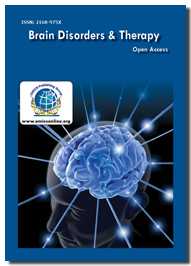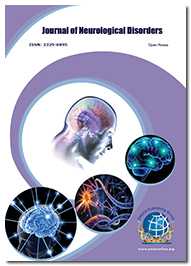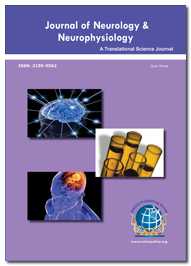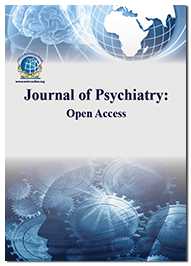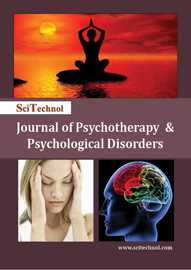Theme: New Insights of Advanced Research and Treatment strategies in Epilepsy
Epilepsy 2015
Epilepsy- 2015
Omics International Conference Series provides the perfect platform for global networking and our Epilepsy Conference 2015 aims to gather the Professors, Researchers, Business Delegates, Scientists, students across the globe to provide an international forum for the dissemination of original research results, new ideas and practical development experiences.
We are truly delighted to invite you to attend the International Conference on Epilepsy and Treatment, during September 21-22, 2015 at Baltimore, USA. The theme of the conference is based on “New Insights of Advanced Research and Treatment strategies in Epilepsy”. Epilepsy global summit will provide two days of robust discussions for the treatment of various types of Epilepsy and its effects in pregnant women, Infantile Seizures, Genetic causes, mutations and other novel diagnostic and therapeutic strategies of Epilepsy. It will also explore new ideas and concepts on a global scale.
Epilepsy is a chronic disorder of the brain that affects people of all ages. Our Epileptic brain conference is assured to act as a catalyst for the advancement in Epilepsy by connecting adepts within and across disciplines under a single roof of knowledge, creating an environment conducive to information exchange, generation of new ideas and acceleration of applications to benefit the nascent research and society.
Epilepsy Congress 2015 welcomes attendees, participants, students and exhibitors from all over the world to Baltimore, USA
The Baltimore area is known for health and science, which is in part, attributed to the prestigious Johns Hopkins University, with its extensive undergraduate and graduate schools, the University of Maryland at Baltimore. Johns Hopkins Hospital and Johns Hopkins University, now serving as the city's top two employers. According to NIH statistics in 2014, the funding for epilepsy research is estimated to be around $132 millions. For More..
Track 1: Epilepsy
Epilepsy is a chronic brain disorder. More than 50 million people were affected worldwide. Synchronous brain cell activity causes seizures and depending on the region of brain affected they will produce a range of behaviors. It is estimated that every year nearly 2.4 million people are diagnosed with epilepsy and the population with active epilepsy is between 4 to10 per 1000 people. Nearly 80% of the individuals with epilepsy are found in developing regions. Historically, the epilepsy research has been under-funded. Annually NIH spends $30 billion for medical research, but ½ of 1% is only spent on Epilepsy research. Of total medical costs Epilepsy alone results in an estimated annual cost of $15.5 billion.
This session is an effort to address all areas related to Epilepsy and includes overview of Epilepsy in brain, Maldevelopment of CNS, Epileptogenesis, Genomics, Neuropsychology, Etiology and its Epidemiology. And our Epileptic network meeting include sessions which explains how the Epileptic networks and Neuronal circuits wired in the “normal” brain are essential to determine how a fault in this wiring leads to chronic seizures.
Track 2: Semiology and Pathophysiology
Seizure is outlined as a transient prevalence of signs and symptoms because of synchronous neuronal activity within the brain. Semiology is giving an evidence-based guidance on what should be noted in a seizure.
Pathophysiology is a convergence of pathology with physiology which describes the functional changes that accompany a particular disease. This session will review the Cellular mechanisms for seizure activity, with specific attention to ion channel defects, the essential currency of Neuronal Excitability, Clinical manifestations, Apoptosis signalling pathways, Inflammatory and mTOR pathways.
Track 3: Causes of Epilepsy
Epilepsy is also a medical condition that affects the brain. The cause is also unknown (idiopathic). There are various types of epilepsies with many different causes which include Prenatal Injuries, Hereditary and Genetic causes, Mutations, Environmental causes and also it may happen due to any Infection or Inflammation.
Track 4: Novel Therapeutic Strategies
Epilepsy Medications are mainstays in controlling epileptic seizures. People with epilepsy often experience long-term cognitive dysfunction and other neurological deficits and neurobehavioral disorders which may exhibit a progressive course correlating with worsening seizure control.
Thus, novel therapies for seizures and the neurological comorbidities of epilepsy like Gene therapy, Stem Cells to the Rescue, Brain Stimulation, MicroRNA regulation, Immunotherapy are desperately needed. Our Epilepsy and Treatment conference deals with current issues in the fields of Epilepsy Research and Novel Therapeutic Strategies. Surgical procedures are another dimension in treatment. And the Ketogenic diet, Rehabilitation and the Seizure Altering Devices are also having the utmost importance. Clinical and Translational research could be new and evolving model that aims to improve patient health by accelerating basic science discoveries.
Track 5: Epilepsy in Women and Inborn
Epilepsy in women raises special reproductive and general health concerns. More than one million women and girls in the United States are living with epilepsy disorders and facing many unique challenges, from changes during the menstrual cycle which may trigger seizures to concerns regarding pregnancy.
We are committed in addressing the unique health concerns of women with epilepsy like Impact of seizures on pregnancy, Psychological Implications, Foetal biological changes in carrier and Hormonal imbalance. Children who are born to women with epilepsy have a higher risk of defects, probably related to in-utero exposure to antiepileptic drugs resulting in Newborn Abnormalities, Neonatal Convulsions, Infantile Convulsions and Choreoathetosis.
Track 6: Major Types of Epilepsies
Epilepsy is of many types with totally different causes, symptoms, and therapies. Epilepsy is not just one condition, it is a diverse family of disorders comprising many types of seizure. Some people have different types of seizures at different times. The present session includes Generalized Seizures, Intractable Epilepsy, Idiopathic Epilepsy, Temporal lobe Epilepsy, Refractory Epilepsy, Focal and Photosensitive Epilepsy, Rolandic Epilepsy, Complex Partial Epilepsy and Childhood Epilepsy.
Track 7: Epileptic Seizures and Syndromes
An Epilepsy Syndrome is outlined by a group of features commonly occurring together. These syndromes give information about types of seizures, their course, what to expect and far more.
This session includes various types of seizures like Absence and Myoclonic Seizures, Tonic-clonic Seizures, Nonepileptic Seizures, along with the syndromes like Angelman Syndrome, Dravet Syndrome Lennox-Gastaut Syndrome, Landau-Kleffner syndrome and West syndrome having unique combinations of symptoms.
Track 8: Advanced Approaches towards Diagnostic Studies
Diagnosing epilepsy is extremely difficult. Even physicians are also able to witness a seizure rarely during the visit. It is very essential to have an exact history of the events that have previously occurred.
Diagnostic services to detect brain abnormalities include Electroencephalogram(EEG), Functional MRI, Functional dichotomy, Multimodal imaging, Positron emission tomography, Computerized tomography (CT) scan, Single-photon emission and Computerized Tomography. Neuropsychological Tests help doctors determine which areas of your brain are affected. Next Generation Sequencing is used to analyze the genetic basis of epilepsies.
Track 9: Prevention and Management of Epilepsy
The best bet to prevent seizures associated with epilepsy is to avoid the things that can trigger your seizures and quit Alcohol and Drugs. The management of patients with epilepsy is focused on three main goals: Controlling and prevention of seizures, Avoiding side effects of treatment and Restoring Quality of life.
This session includes some measures like Prenatal care, Management of Stress and Relaxation, Automobile safety, Balanced diet and Exercise. The Biomarkers of Seizure onset and Epileptogenesis serve as therapeutic targets for the development of new anti-epileptogenic and anti-seizure compounds.
Track 10: Impact of the Epilepsies on daily life
The impact of epilepsy is multifaceted and immeasurable. The unpredictability of seizures imposes severe restrictions on lifestyle and can inhibit patient’s social interactions.
Epilepsy can impact Mental Health, Driving and Recreation, Education and Employment, Marital Status and Pregnancy. Epilepsy can also result in Stigmatization and social exclusion with deleterious effects on an individual's confidence and self-esteem. Moreover, the Burden of epilepsy extends on the far side the results of seizures themselves.
Track 11: Diseases Associated with Epilepsy
In chronic conditions like epilepsy, the coexistence of more than one illness in a patient is the rule rather than the exception. The incidence of neurobehavioral disorders like Neuropsychiatric conditions, Bipolar Disorders, Sleep seizures, Mood and Paroxysmal Movement Disorders is higher in patients with epilepsy than in the general population. Epilepsy is also associated with Depression, Overweight, Hemiplegia and Migraine. And Sudden unexpected death in epilepsy (SUDEP) is a fatal complication of epilepsy.
Track 12: Epilepsy Imitators
Many episodic phenomena involving sensory, motor, autonomic, and behavioral functions may imitate epilepsy. They may cause a symptom that looks like a seizure, but they do not show the EEG changes in the brain that are characteristic of an epileptic seizure.
Some medical conditions like Behavioral, Psychological and Psychiatric conditions, Paroxysmal Movement Disorders, Syncope and Anoxic Seizures mimic certain aspects of seizures but may not be associated with an abnormal electrical discharge in the brain. Sleep related Conditions include body rocking, jerks, rolling and head banging and Migraine associated Disorders share many clinical symptoms and underlying pathophysiological mechanisms of Epilepsy.
Conference Highlights
- Epilepsy
- Semiology and Pathophysiology
- Causes of Epilepsy
- Novel Therapeutic Strategies
- Epilepsy in Women and Inborn
- Major types of Epilepsies
- Epileptic Seizures and Syndromes
- Advanced Approaches towards Diagnostic Studies
- Prevention and Management of Epilepsy
- Impact of the Epilepsies on daily life
- Diseases Associated with Epilepsy
- Epilepsy Imitators
To share your views and research, please click here to register for the Conference.
To Collaborate Scientific Professionals around the World
| Conference Date | September 21-22, 2015 | ||
| Sponsors & Exhibitors |
|
||
| Speaker Opportunity Closed | Day 1 | Day 2 | |
| Poster Opportunity Closed | Click Here to View | ||
Useful Links
Special Issues
All accepted abstracts will be published in respective Our International Journals.
Abstracts will be provided with Digital Object Identifier by


























